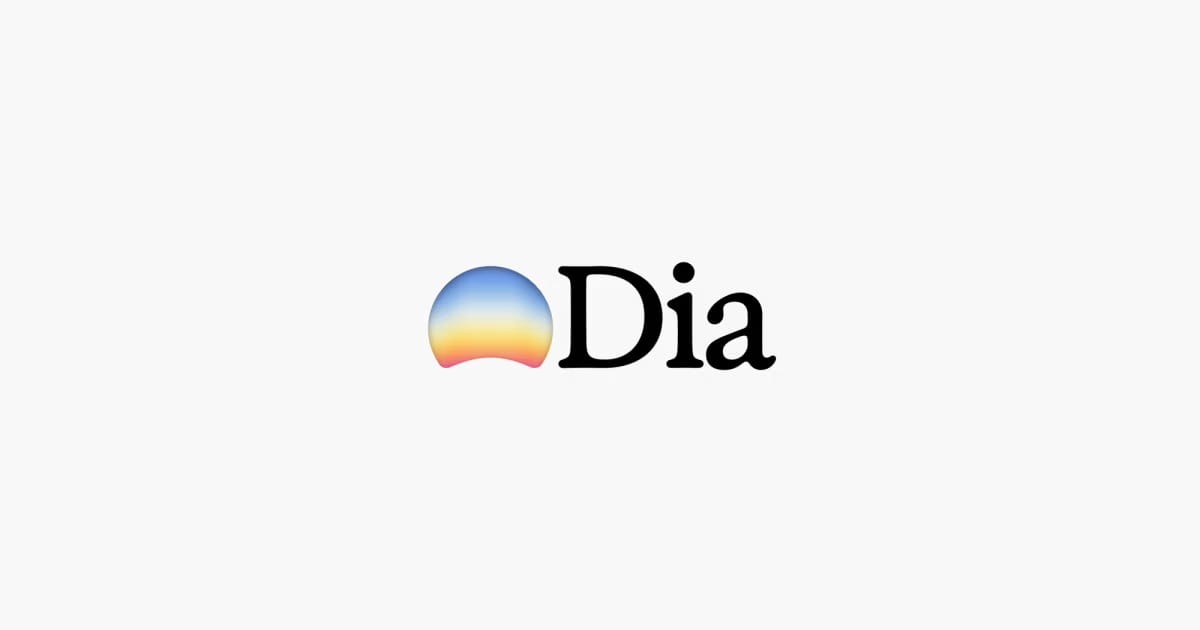Escalated, the AI Browser Wars Have – Quickly

Just two weeks after I wrote a post entitled "Begun, the AI Browser Wars Have", outlining some thoughts on The Browser Company's new entrant Dia and where the general space is likely heading, two more key players seem poised to emerge.
Yesterday, Perplexity formally unveiled their Comet browser. And while it's still being slowly rolled out to their waitlist, anyone who wants to pay can play with it now. The cost? Signing up for Perplexity's 'Max' plan, which is $200/month.
I'm certainly tempted given my use of Dia over these past many weeks, but I'll continue playing Perplexity's waitlist game for now. And so here's an overview of some of Comet's features from Maxwell Zeff at TechCrunch:
Comet’s headline feature is Perplexity’s AI search engine, which is pre-installed and set as the default, putting the company’s core product — AI generated summaries of search results — front and center.
Users can also access Comet Assistant, a new AI agent from Perplexity that lives in the web browser and aims to automate routine tasks. Perplexity says the assistant can summarize emails and calendar events, manage tabs, and navigate webpages on behalf of users. Users can access Comet Assistant by opening a sidecar on any webpage, which lets the AI agent see what’s on the webpage and answer questions about it.
It's interesting that Dia and Comet have different starting points in this "AI Browser" race, but it also makes sense. Comet is ultimately Perplexity's way to ensure their other core products get into consumers hands. Dia is The Browser Company's core product. Granted, the chatbot built into Dia is essentially a product too – and one, I suspect, you'll have to pay for in order to get full access to features and functionality at some point – but they're also happy to have you fall back to Google Search if that's what you want to do. Comet? Not so much. As Perplexity co-founder and CEO Aravind Srinivas makes abundantly clear on Xitter, their aim is to go squarely after Google on all fronts.
Still, beyond the web search element, in usage, Dia and Comet sound similar:
My favorite way to use Comet Assistant, so far, is loading it in the sidecar while I’m browsing the web. Perplexity’s on-browser AI agent can automatically see what I’m looking at, so I can simply ask it questions without needing to open a new window or copy and paste text or links. It’s right there, and it always has the context for what I’m looking at.
Comet Assistant was able to answer questions about posts on social media, YouTube videos, and even sentences I just wrote in a Google Doc. I imagine this will streamline workflows for millions of people that are sending screenshots, files, and links to ChatGPT all day.
Where they really start to diverge is the "agentic" work that Comet aims to do. Presumably, Dia wants to get there as well, but Comet is doing it from day one – or at least trying to. It sounds a bit rough at the moment:
But Comet Assistant fails at more complicated tasks. For example, I tried asking it to help me find a long-term parking spot at San Francisco’s airport for an upcoming trip, specifically places with good reviews that cost less than $15 a day.
The assistant offered up several options that seemed to fit the criteria, so I asked it to book me a spot at one of the locations for the dates I’d be away. The agent navigated the parking lot’s website for me, entered in dates, and even some of my information, then asked me to review what it did and check-out.
Turns out, Comet Assistant hallucinated and entered completely wrong dates, later telling me that the dates I wanted were booked, but still wanted to have me complete the check-out anyways. I had to tell the AI agent that the dates were non-negotiable, and asked it to find another location. It ran into the same problem again.
This is also likely to be a big part of OpenAI's push into the browser space. Back in January, upon playing around with 'Operator', ChatGPT's first agentic product, I wrote a piece with the following headline: "OpenAI's 'Operator' Shows Why They'll Build a Web Browser". It was obvious – OpenAI was using a custom-built version of Chrome to do their agentic workflows in the cloud. Clearly, they were going to build their own browser to do this eventually.
And here we are. As Kenrick Cai, Krystal Hu and Anna Tong report for Reuters:
OpenAI is close to releasing an AI-powered web browser that will challenge Alphabet's market-dominating Google Chrome, three people familiar with the matter told Reuters.
The browser is slated to launch in the coming weeks, three of the people said, and aims to use artificial intelligence to fundamentally change how consumers browse the web. It will give OpenAI more direct access to a cornerstone of Google's success: user data.
Yes, and:
A web browser would allow OpenAI to directly integrate its AI agent products such as Operator into the browsing experience, enabling the browser to carry out tasks on behalf of the user, the people said.
The browser's access to a user’s web activity would make it the ideal platform for AI "agents" that can take actions on their behalf, like booking reservations or filling out forms, directly within the websites they use.
This follows a report from last year in The Information that OpenAI was considering going after this market and had made some key hires from, where else, Google to go after it – specifically people who help build Chrome. With that in mind:
OpenAI's browser is built atop Chromium, Google's own open-source browser code, two of the sources said. Chromium is the source code for Google Chrome, as well as many competing browsers including Microsoft's Edge and Opera.
Naturally, Dia and Comet are built on top of Chromium as well. Fascinating to think that Google's open source work here could be their downfall in this market...
And while the DoJ would like Google to have to sell off Chrome, that's not going to happen – certainly not to OpenAI – in part because AI is creating a new lane here. Both in Search and in web browsing. Google seems confident enough that they're keeping Chrome to go so far as to bake Gemini right into their browser too. It's risky given the regulatory heat on them, but also what choice do they have? Should they have to just sit back and be disrupted? Instead, if Chrome is disrupted it will be because these newer AI browsers are simply better and more useful than Chrome. Again, while being built on top of Chromium.










